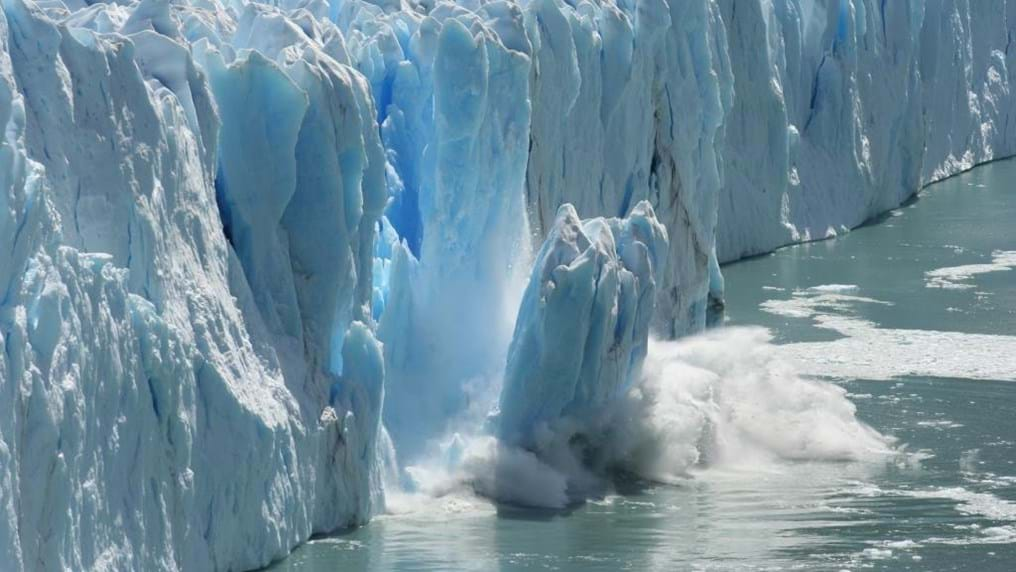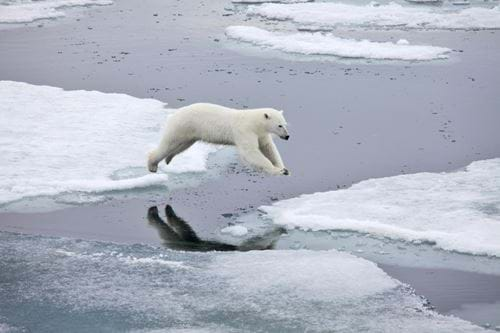Day 163: It's not just the polar bears at risk

6th November 2014
Author: Geoff Maitland, IChemE President 2014–2015.
In relation to climate change, the plight of the polar bear is often highlighted. But should that image now include humans?
By the end of the century it may be a reality - certainly the Intergovernmental Panel on Climate Change (IPCC) think so.
In my role as a professor of energy engineering and my previous stern warnings about our dangerously low rate of progress in reducing carbon emissions, you can imagine that I had been eagerly anticipating last Sunday’s release of the IPCC's Synthesis Report.

The report contains the strongest statements yet by the IPCC about how serious the consequences of continued release of greenhouses gases are likely to be, and the urgency with which governments, corporations and the general public need to act.
They stated unequivocally that the evidence for anthropogenic climate change is incontrovertible. As a result, the future use of fossil fuels is ‘unacceptable’ unless much of the emitted CO2 is prevented from reaching the atmosphere through Carbon Capture and Storage (CCS).
As the name suggests, CCS is the capture and storage of CO2 from power plants and industrial sites that burn fossil fuels.
This echoes the concerns that I have been expressing for a long time now, that the current rate of implementation of CCS and other low carbon technologies is lamentably slow. We are sleepwalking into a future where the catastrophic consequences of climate change are unavoidable.
I should point out that a few of my fellow chemical engineers do not agree with me on this, but the vast majority do and the evidence from IPCC and elsewhere overwhelmingly supports this view.
There are fewer than 20 large-scale CCS projects in the pipeline worldwide. I think this is astonishing.
The science tells us that the world needs 3,500 commercial-scale CCS projects worldwide by 2050 - so we need to be installing about 100 every year.
This is alongside all the other things we need to be doing: improving energy efficiency, increasing renewable energy and building new nuclear power stations. This is a colossal challenge - but I’m sure it’s still achievable.
And so it frustrates me enormously that commentators frequently say that CCS is still ‘technology in its early stage of development’. While continued R&D may be needed to bring costs down and improve efficiency, the technology has existed for many years, is well-developed and is just waiting to be implemented.
The problem is working out who will pay for it. One day, an effective carbon price may drive CCS through market forces, but widespread introduction of CCS needs to be kick-started by government intervention.
This needs to be backed up by public support for sharing the associated costs between government, corporations and citizens in an equitable, transparent and socially acceptable manner. The sooner this happens, the cheaper it will be.
Some may argue that this is too hard, but I firmly believe the public can accept that if we are to hand on a safe world to young and future generations, we need to act now. The longer we avoid implementing CCS and progressing the low-carbon energy transition, the more it will cost and the worse the consequences of climate change will be.
Tobacco companies have been taken to court for exposing the public to the risks of health damage from the use of their products, when they are aware of the extent of the risks well ahead of the general public.
I believe that polluting companies and governments similarly have a moral obligation to protect the public from the potential environmental catastrophe that results from an above 2 degrees centigrade rise in mean global temperatures.
The time for talking is over, the time for action is now!
ChemEng365 blog
Geoff Maitland launched this blog during his IChemE presidency in 2014. ChemEng365 features 365 chemical engineering successes and achievements throughout his year-long presidency.